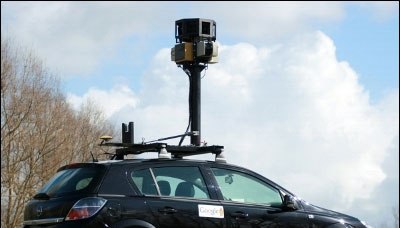Czech Government Limits Google Street View

Google will not be able to expand its Street View service in the Czech Republic, after authorities rejected its application for personal data collection
In the latest setback to Google Street View, an application by Google to collect personal data for its mapping service has been rejected by Czech data protection authorities.
This is the second time that Google’s application has been rejected by the Czech Office for Personal Data Protection (UOOU), which claims the process of collecting personal data could be illegal.
UOOU spokeswoman Hana Stepankova told Reuters that the decision would not ban Google from using photographs already taken since the Czech launch of Street View in October 2009, allowing the service to continue, and that talks over the use of data will continue.
Blurred images

Reuters reports that Google is currently required to blur out the faces of Czechs captured by Google Street View cameras, but there is still a question over the use of un-blurred car registration plates and façades of buildings appearing on Street View.
However, a Google spokesperson confirmed to eWEEK Europe that car registration plates are already blurred out by Google everywhere in the world.
“We’re disappointed with these comments as we believe Street View is legal in Czech Republic,” the spokesperson said. “We have in place robust procedures to protect privacy, such as face and number plate blurring and a removals tool.
“We’ll continue to engage in constructive dialogue with the DPA to answer any other questions they have. Street View has proved a popular and useful tool for consumers and businesses around the world and we look forward to finding a solution to bring additional imagery to people in Czech Republic,” she added.
Google’s data collection processes are currently the subject of ongoing investigations in several countries worldwide, after it was discovered that Street View cars had inadvertently collected more than 600GB of data from unsecured Wi-Fi networks. The incident provoked outrage from governments and privacy advocates.
In July, the Information Commissioner’s Office (ICO) examined samples of the data collected by Google in the notorious “WiSpy” incident, and concluded that it was free of any “meaningful personal details”.
“On the basis of the samples we saw we are satisfied so far that it is unlikely that Google will have captured significant amounts of personal data,” said the ICO at the time. “There is also no evidence as yet that the data captured by Google has caused or could cause any individual detriment.”
Street View cars therefore returned to service in the UK in August, minus their Wi-Fi antennas, to continue collecting photos and 3D data around the country. Street View cars are also back in action in Ireland, Norway, South Africa and Sweden.
‘WiSpy’ incident
However, Google has not had such a smooth ride in other countries. Google’s South Korean headquarters were raided in August by police looking for evidence of illegally stored data, seizing hard drives and related documents. The company also had to deny reports that it was experimenting with spy drones or UAVs, typically used by special forces or the police. Meanwhile, the service is being probed by Spanish authorities, following a complaint filed in June by private internet watchdog Apedanica.
Google plans to introduce its Street View technology in 20 German cities before the end of the year, but is facing problems after serious concerns were aired by the country’s top privacy regulator. In addition, reports have emerged that Germany’s Cabinet is discussing what the country might do to ease concerns.
Interior Minister Thomas de Maiziere reportedly told the Berliner Zeitung newspaper people shouldn’t get “hysterical” about the issue and called for “caution in introducing blanket rules allowing objections.”